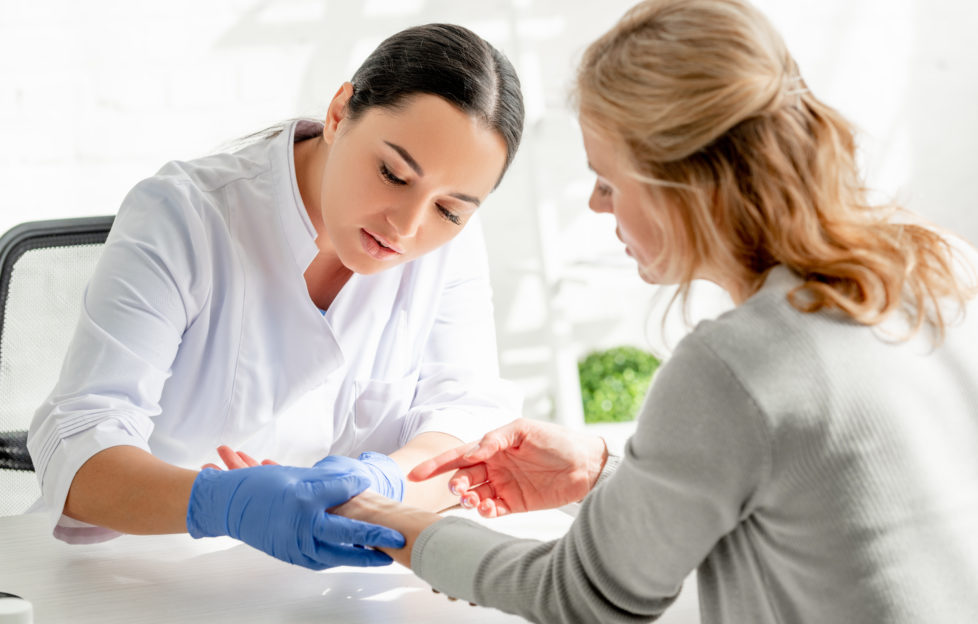 Shutterstock / LightField Studios©
Shutterstock / LightField Studios©Today is World Psoriasis Day, an annual event dedicated to people with psoriasis and/or psoriatic arthritis.
The theme for this year is “Informed”, and organisations like the International Federation Of Psoriasis Associations are aiming to use it to raise awareness of the condition, which can have an emotional, as well as physical impact.
We spoke with Dr Sivanie Sewell, Consultant Dermatologist & British Skin Foundation spokesperson, to find out a bit more about what causes the condition and how best to treat it.

Dr Sivanie Sewell. Picture courtesy of British Skin Foundation.
“Psoriasis is a chronic immune mediated condition. It causes inflammation, and it causes the body to make skin cells more quickly (every 3-7 days rather than 4 weeks) than it sheds.
“There are various types of psoriasis:
- plaque (large scaly areas)
- guttate (small red scaly spots)
- flexural (shiny, red, smooth areas in the folds of the skin e.g. armpits)
- pustular (well defined, red puss filled bumps)
- palmoplantar (palms and soles affected)
- scalp (scalp affected)
- erythrodermic (rare form which presents as red, hot, peeling rash which may be associated with feeling unwell)
- nail psoriasis (pitting, ridging, discolouration)
- joints (psoriatic arthritis)
“The exact cause of the immune system dysfunction is still unclear. Research suggest that there are both genetic and environmental factors that play a role.
“Flare ups can occur due to a number of factors. For example: cold and windy weather, stress, anxiety, smoking or exposure to second hand smoking, and excess alcohol consumption.
“Certain infections (e.g. streptococcal throat infection) can also play a role. As can certain medications (e.g. lithium, beta-blockers, antimalarial drugs), injury to the skin (e.g. sunburn, insect bite, cut), hormone changes and rapid withdrawal of strong steroid creams or ointments or tablets, and being overweight is a risk factor for psoriasis.
How can we best treat psoriasis?
“There is still no cure for psoriasis, and complete clearance may not always be possible for everyone. But there are many treatment options available to keep it under control (and clear it for some people).
“The most important long-term management option for anyone with psoriasis affecting their skin is using an emollient (bland moisturiser) every day. This keeps the skin hydrated to reduce flare ups.
“During flare ups, increasing the application frequency of the moisturiser will help, along with active treatments.
“Active treatments are a very important step in treating psoriasis. Examples of active treatments include coal tar, steroid, vitamin D analogues (calcipotriol), dithranol, salicylic acid and calcineurin inhibitors in the form of creams, ointments, foams, scalp applications and shampoos.
“For those with moderately severe or severe psoriasis, phototherapy (artificial UV treatment carried out in a controlled manner in a dermatology department), immunosuppressive tablets or injections, and biologic injections are extremely effective for many people.
“Treatments for the condition are only available on prescription. So it is important that you see a Dermatologist or your GP for a diagnosis and treatment if you think you may have psoriasis, or have a diagnosis of psoriasis and it isn’t well controlled.”
For more health and wellbeing advice from “The People’s Friend”, click here.




